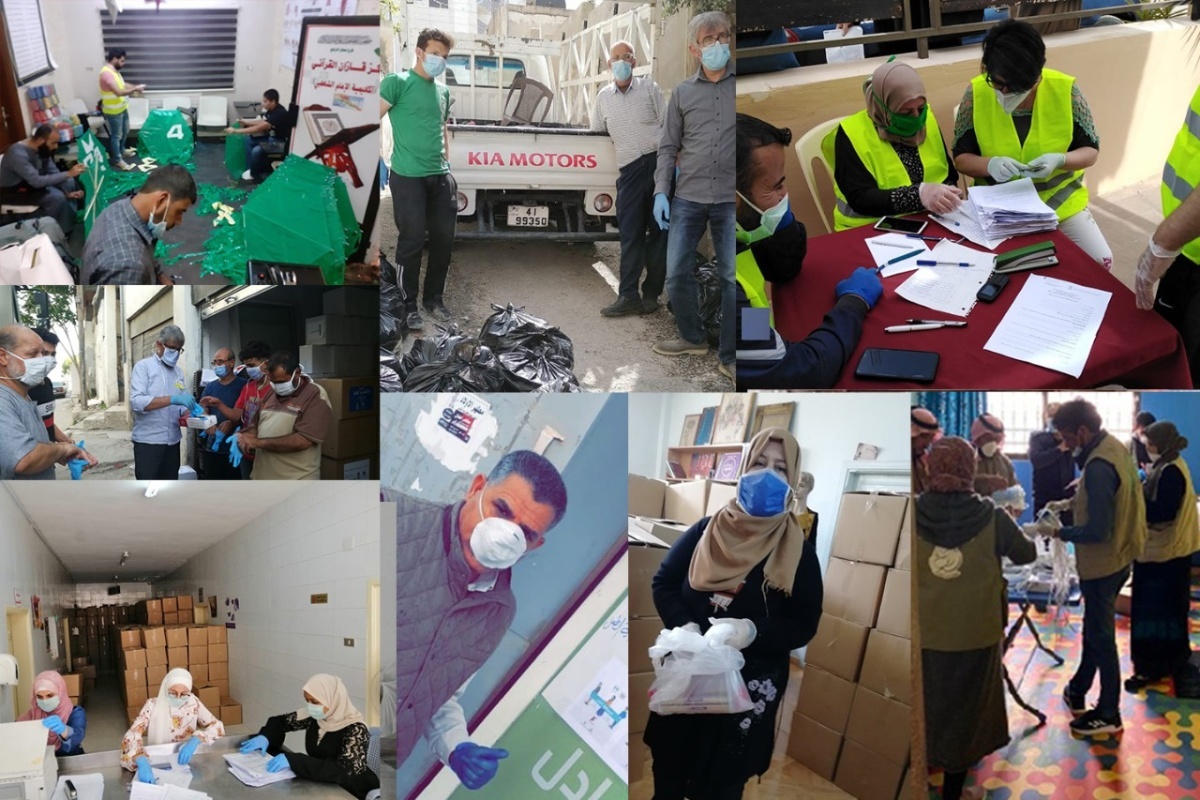Local Responders – Unsung Local Heroes
The Alliance for Empowering Partnership (A4EP) celebrates with pride the achievements of local heroes. On World Humanitarian Day 2020, we pay tribute to the many local heroes in the many local organisations that responded quickly, and often at great personal risk, to the impacts of COVID-19 and the lockdown measures to control its spread. These unknown and sometimes unpaid individuals raised awareness, provided information and a lifeline to a rapidly expanding number of people who were impacted in one or multiple ways. In many countries, they have been the ‘essential’ people alongside health workers, sanitary workers, drivers, shopkeepers and others. They have and continue to work with the local authorities to upscale the response with limited local resources, while the international aid system was largely paralysed. They stepped up and stepped in and took responsibility to lobby on behalf of communities, provided information, food, essential items, raised alarm about gender-based violence and overcame the obstacles of lockdowns through innovation. We recognize and acknowledge the resilience of local organisations in this pandemic showing capacity and using the nexus approach. Real-time heroes are in our midst all the time – the living souls that sustain humanity in us. We celebrate their diversity, commitment and adaptability.
Speaking Truth to Power-Unsung Local Heroes
World Humanitarian Day 2020 however also calls us to reflect honestly about unconscious bias and conscious prejudice. The humanitarian sector should operate out of a fundamental recognition of shared humanity. Anti-racism protests across the globe, led by the Black Lives Matter movement and others, has put a spotlight on deeply ingrained historic and systemic racist attitudes and racial discrimination that deny people their fundamental human rights. It has -finally- created the opening to speak about racism and attitudes of colonialist superiority also in that ‘humanitarian’ sectori. Often times, local organisations have also been hindered by self-limiting beliefs, a legacy left by colonial past and new international aid hegemony. Limited self-confidence means potential (under) used and valuable contributions not made.
Racism is only one expression of a much deeper problem with a self-image of superiority among international aid organisations and several of their staff. That superiority is underpinned by wider narratives and attitudes. Fundamental moral confusion and loss of values in organisational purpose and behaviours is not a technical problem that has a technical solution. The sense of superiority is deeply rooted in the mindset, and can only be addressed by a deep, critical and challenging reflection on whether an organisation’s existence is grounded in lived values like solidarity and genuine belief in shared humanity and respect for others and valuing diversity.
Local heroes have their own house in order
While the international aid business needs to deeply examine its unconscious but also very conscious biases, racism and sense of superiority, we as local and national organisations acknowledge that racism and disrespectful behaviours can also occur among our staff, towards crisis-affected populations, towards colleagues of other social identities, and occasionally, in frustration, towards international aid workers. We too need to address these issues internally. That is no excuse however for the international relief business not to take its structural problem much more seriously than with a few nice public statements.
Diversity and Solidarity: A multitude of heroes
Real celebration of diversity and solidarity would mean that all organisations address this issue with critical self-reflection and have authentic conversations and create a conscious culture that deals with issues more proactively. We need to create an environment that is open and provides the space for people to thrive, instead of just surviving. Solidarity also means recognizing these local heroes who are sometimes giving their lives to serve the community. Local organisations need to take their rightful space at the table in local and national decision making, leading humanitarian response, influencing international policy through injecting ground realism, accessing financial and other resources raised in the name of affected communities in their countries. They need to be able to access detailed information on how funds are being spent. Most of all we need to restore respect and dignity to the local heroes. We need to work in solidarity to tackle inequality and injustice, not only in the society around us, but also in our own ‘aid sector’.
i https://www.bond.org.uk/news/2020/06/time-to-dismantle-racism-in-international-development
https://gadnetwork.org/gadn-resources/gadns-woc-forum-statement-on-systemic-racism-and-white- supremacy
https://www.theguardian.com/global-development/2020/jul/10/medecins-sans-frontieres-institutionally- racist-medical-charity-colonialism-white-supremacy-msf
https://www.msf.org.uk/statement-msf-uk-board-trustees-institutional-racism
https://www.savethechildren.org.uk/blogs/2020/blm-solidarity-statement-charity-leadership-team
https://www.devex.com/news/opinion-building-a-movement-in-the-aid-sector-against-racism-and- islamophobia-97613


